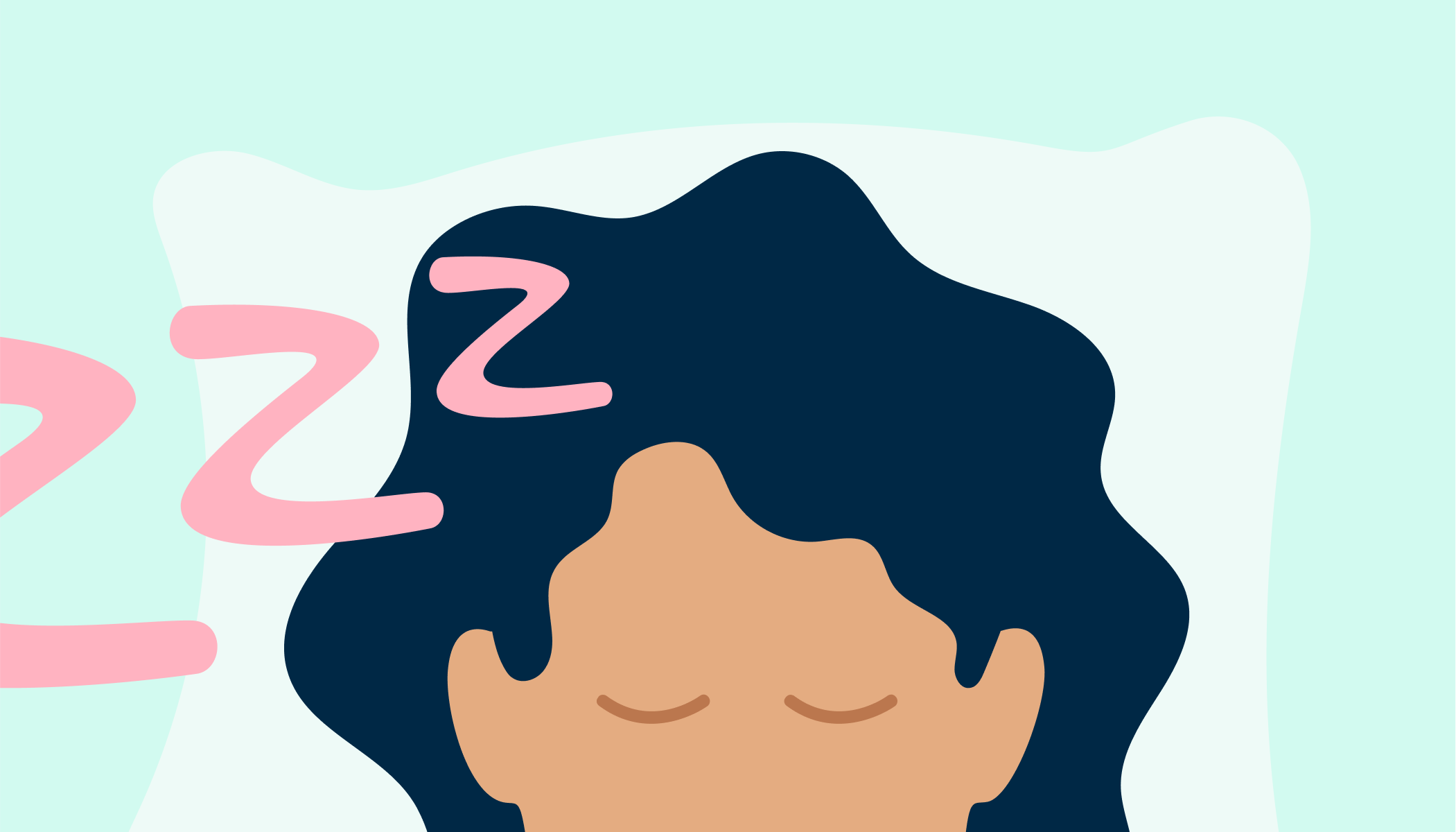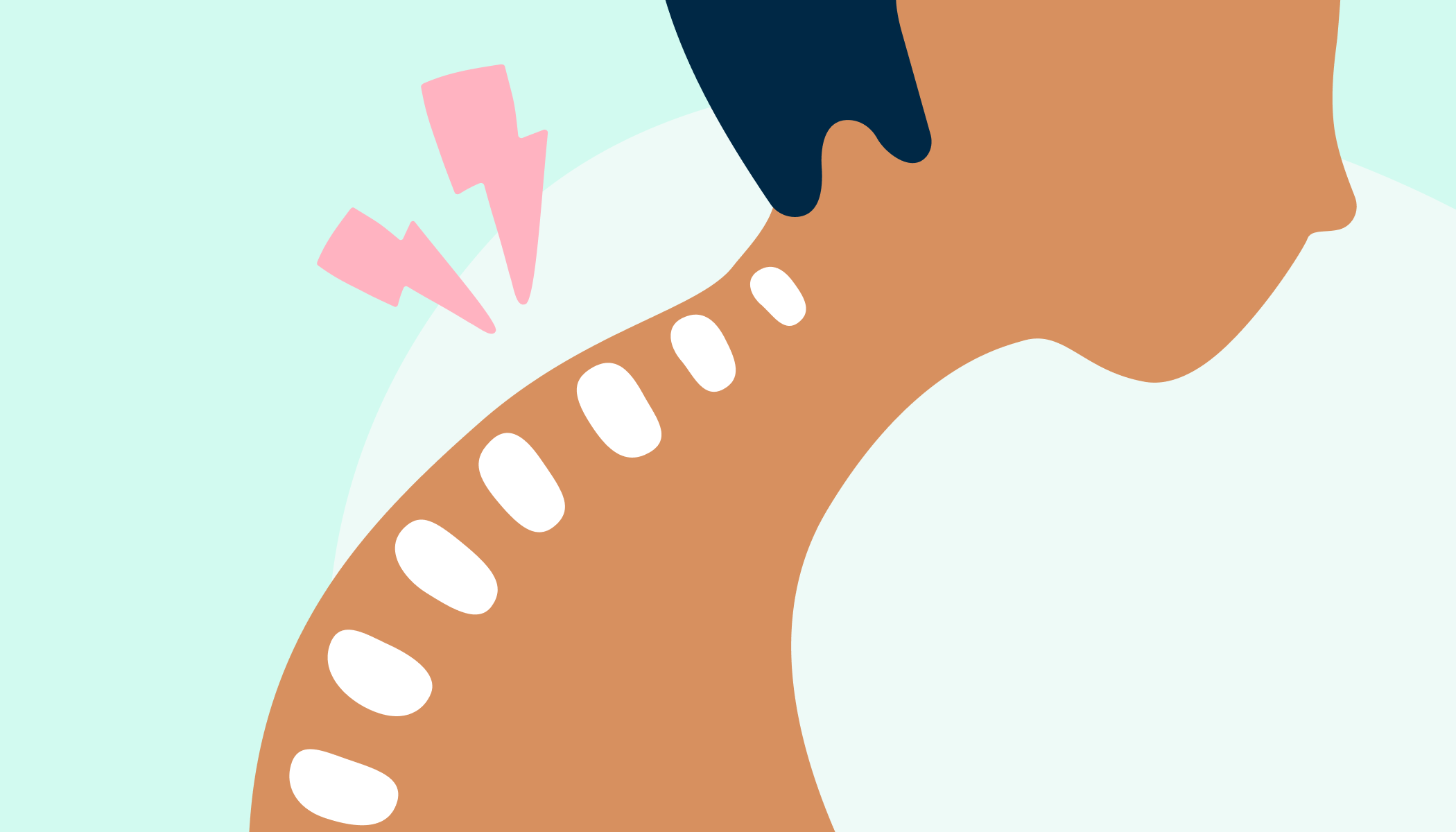A good night’s sleep helps you wake feeling refreshed and ready for the day, and there is compelling evidence to show it’s also important for your overall health and a strong immune system.
Most adults need 6-9 hours’ sleep a night and as we sleep, our body carries out all sorts of running repairs and essential maintenance. That may explain why long-term sleep problems are linked to an increased risk of obesity, diabetes, heart disease, cancer, depression and other serious health problems.
Before the pandemic, about a third of adults suffered regular episodes of insomnia and studies from around the world have found this has worsened as a result of anxiety and sleep disruption related to Covid-19.
Here are some common sleep problems and our advice for getting help.
1. Insomnia
There are generally 3 types — struggling to get to sleep, being easily disturbed and waking up in the night, or waking too early. But Livi GP Dr Rhianna McClymont says simple lifestyle changes and improved sleep habits should resolve most of these issues.
‘It’s important to have a sleep routine, which ideally includes going to bed at the same time each day, making sure your bedroom is dark and quiet, and avoiding electronics before bed,’ she says.
Your bedroom should be a place reserved for sleep, and for sex, as this is the only form of physical activity which makes us sleepy. Other tips to help you unwind and switch off include:
- Avoid caffeinated drinks for 6 hours before bedtime
- Have a warm, milky drink or herbal tea as you wind down
- Keep the temperature in your bedroom between 18C and 24C
- Fit thick curtains, or use an eye mask so you’re not disturbed by light
- Use earplugs if your partner snores, or you live in a noisy neighbourhood
- Take a warm, but not hot, bath just before bedtime
- Get regular exercise, a sedentary lifestyle increases the risk of insomnia
- Avoid vigorous exercise 4 hours before bedtime, but yoga stretches and relaxation exercise can be helpful
- Write a to-do list to try to clear your mind of distractions
- Sprinkle a few drops of lavender oil into a diffuser or on your bedding, as studies suggest it can help to improve sleep quality
If you’ve tried to improve your sleep hygiene and insomnia is continuing to affect your daily life, keep a sleep diary for 2 weeks and then discuss the results with a GP.
‘Sleeping tablets are not normally recommended as they can be addictive and disrupt your natural sleep pattern,’ says Dr McClymont. But your doctor may recommend a sleep app or suggest Cognitive Behavioural Therapy (CBT) to tackle the thoughts and habits that keep you awake at night.
2. Sleep apnoea (OSA)
Sometimes called Obstructive Sleep Apnoea (OSA), this common sleep condition is linked with an increased risk of heart attack, stroke and road accidents.
But many people who have OSA don’t realise they have a problem. For instance, it’s estimated that around 1.5 million adults in the UK have OSA but only 330,000 cases have been diagnosed .
Symptoms of OSA may initially only be noticed by partners — they include the following:
- Stop-start breathing
- Loud snoring
- Gasping for breath, or making snorting or choking noises
- Waking frequently during the night
- Feeling very tired during the day
- Waking with a headache
- Poor concentration
- Mood swings
‘If you have symptoms of sleep apnoea and it’s affecting your activities — for instance, you fall asleep while sitting and reading, or while a passenger in a car — then you should talk to a GP,’ says Dr McClymont.
‘Weight loss or reducing your alcohol intake can improve sleep apnoea. If these measures don’t help, your GP may refer you to a specialist who can offer further treatment such as CPAP,’ she says. This is a mask device which delivers oxygen via Continuous Positive Airway Pressure (CPAP). It’s worn while you sleep and is a very effective treatment for sleep apnoea.
3. Sleep paralysis
Feeling you’re awake but unable to move or speak is known as sleep paralysis and is most likely to happen as you are waking up or just as you’re falling asleep. It can last for a few seconds or even a few minutes and, while this can be frightening, it’s usually nothing to worry about.
‘Sleep paralysis does not usually need treatment, but if it is occurring very regularly, or is distressing you, have a chat with a GP,’ says Dr McClymont.
‘Sleep paralysis has been linked with generalised anxiety disorder (GAD), panic disorders and PTSD. If this seems to be the cause for you then a doctor can arrange for psychological treatments to address these.’
4. Restless legs syndrome
If you get an overwhelming urge to move your legs at night, you may have restless legs syndrome, which is also associated with jerking movements or an unpleasant creeping sensation.
There’s often no obvious cause, although it can run in families and is more common during pregnancy. It’s estimated that 1 in 5 women experiences restless legs syndrome during pregnancy.
‘It can generally be improved with regular exercise, leg massage and a good sleep routine,’ says Dr McClymont. ‘But if this doesn’t relieve symptoms or you find the symptoms upsetting, it’s a good idea to see a doctor.’
Restless leg syndrome can be a sign of iron deficiency or kidney problems and, if your symptoms are severe, there are also prescription medications that may be considered.
5. Night terrors
These are common in children aged between 3 and 8. And while they are frightening, children rarely remember them the next morning and they don’t cause any long-term psychological harm.
Episodes usually occur early in sleep and are more likely when children are overtired or feverish. The child may shout, scream and thrash around in sheer panic. Their eyes may be open, but they are not actually awake.
Unless your child is in danger of hurting themselves, it’s best not to wake them. But if the episodes happen around the same time, you can try waking them 15 minutes earlier, every night for a week, to try to break the cycle.
If the night terrors persist, or occur several times a night, speak to your GP as there might be an underlying issue which can be treated — such as a breathing problem caused by oversized tonsils.



